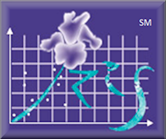Professional growth and the acquisition of new skills and knowledge are essential for non-sensory professionals and managers
These professionals have specific interests in the area of sensory evaluation and consumer research, such as:
- learn, and understand the sensory lexicons/language and sensory attributes of the products they work with, and/or
- learn the basics of sensory evaluation and consumer research guidance tests and the data generated by those tests. This allows effective communication with sensory professionals and the understanding of sensory and consumer research guidance information
IRIS: International Resources for Insights and Solutions, LLC (IRIS), a leader in sensory and consumer research methodology, and descriptive analysis/sensory lexicons has designed and conducted numerous successful staff training programs for product developers, marketing/market research professionals, management, quality control/quality assurance staff and other non-sensory professionals.
IRIS’ workshops and short courses for non-sensory professionals are custom-designed to address the group’s needs, and might include any of the following topics and focused discussions:
METHODOLOGY
- Discrimination data, interpretation and use
- Sensory descriptive analysis information
– Descriptive methods and type of results
– Descriptive data characteristics, interpretation and use - Bench product screening
- The ideal sequence of sensory/consumer tests and activities. Test design and execution of sensory and consumer tests and collaboration areas
- Data relationships
- Descriptive-consumer
- Descriptive-instrumental/analytical
- Other topics related to the use of sensory and consumer research guidance test information
SENSORY ATTRIBUTES AND LEXICONS
Their understanding and use by product developers, managers and market/marketing research, quality control and assurance professionals
- Generation of lexicons by a descriptive panel
- Main characteristics of sensory descriptive lexicons
- Desirable/positive lexicons
- Flawed lexicons and issues
- Sensory lexicons for the company’s non-sensory staff
- Do’s and don’ts
- Generation
- Use
- Communication about products’ sensory properties using sensory lexicons
- Demonstrations and exercises – Sensory dimensions/properties
- Demonstrations and exercises – Sensory lexicons
